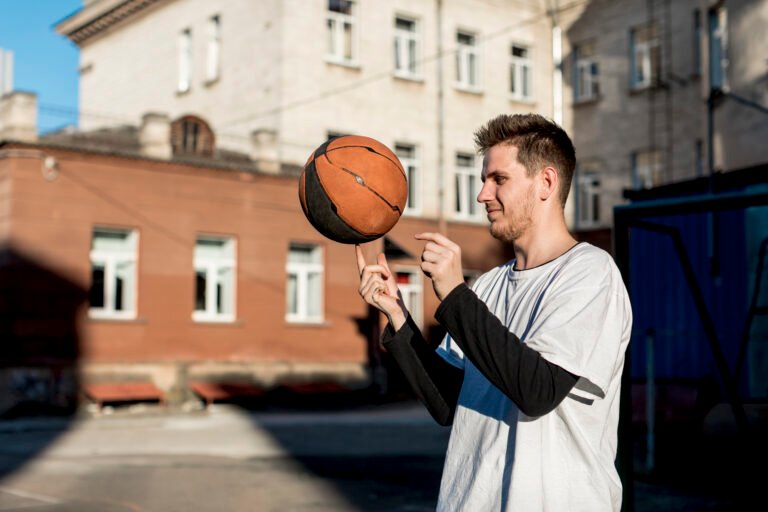How Do European Coaches Develop Basketball Players
How Do European Coaches Develop Basketball Players
1.Understanding the European Coaching

(A) Historical Context of Basketball Coaching in Europe
European basketball coaching has undergone a remarkable transformation. In the early days, coaching focused primarily on basic skills and physical training. Over the decades, coaching techniques evolved to include a deeper understanding of the game, influenced in part by the competitive styles seen in various European leagues.
Evolution of Basketball Coaching Techniques: Coaches began incorporating strategic elements, preparation, and analysis of opponents. This made players not just skilled athletes, but also tactically intelligent competitors on the court.
Impact of European Competition Styles on Player Development: European leagues emphasize different playing styles, often focusing on teamwork and movement, as opposed to isolated athleticism. This helps players develop a comprehensive view of the game early in their careers.
Influence of Notable European Coaches on Global Practices: Coaches like Ettore Messina and Željko Obradović have made significant marks on basketball worldwide, shaping how players are trained, thus elevating both European and global coaching standards.
(B) Key Principles of Training
Europeans coaches adhere to fundamental principles that set them apart.
Emphasis on Fundamentals and Skill Development: The core of European coaching is a strong focus on fundamentals. Coaches like to ensure that players can shoot, pass, and handle the ball effectively before layering on more complex skills.
Approach to Teamwork and Communication: Teamwork is central to success in European basketball. Coaches encourage open communication among players, fostering a culture of collaboration.
Focus on Tactical Intelligence and Game Understanding: Players are taught not just to follow plays, but to understand the strategy behind them. This focus on basketball IQ often results in players who can adapt during games.
(C) Differences from Other Coaching Styles
European coaching methods offer a refreshing contrast to American approaches.
Comparison with American Coaching Methods: While American coaching often emphasizes individual prowess and athleticism, European styles promote collective team play and a broader understanding of the game.
Adaptation to Different Player Backgrounds and Experiences: European basketball is also more inclusive, adapting to various player backgrounds, especially with the increasing diversity in leagues.
Importance of Player Versatility: Coaches in Europe value players who can perform multiple roles—this versatility allows teams to be more fluid in their strategies.
2.Training Methodologies Employed

(A) Holistic Player Development
European basketball coaching has undergone a remarkable transformation. In the early days, coaching focused primarily on basic skills and physical training. Over the decades, coaching techniques evolved to include a deeper understanding of the game, influenced in part by the competitive styles seen in various European leagues.
Evolution of Basketball Coaching Techniques: Coaches began incorporating strategic elements, preparation, and analysis of opponents. This made players not just skilled athletes, but also tactically intelligent competitors on the court.
Impact of European Competition Styles on Player Development: European leagues emphasize different playing styles, often focusing on teamwork and movement, as opposed to isolated athleticism. This helps players develop a comprehensive view of the game early in their careers.
Influence of Notable European Coaches on Global Practices: Coaches like Ettore Messina and Željko Obradović have made significant marks on basketball worldwide, shaping how players are trained, thus elevating both European and global coaching standards.
(B) Structured Training Programs
Consistency is key in European coaching.
Year-Round Training Plans and Their Components: Many teams follow structured, year-round training schedules that incorporate skill drills, physical conditioning, and tactical training.
Integration of Technology in Performance Analysis: Coaches use video analysis and software to help players understand their game better and focus on areas that need improvement.
Role of Practice Games and Scrimmages in Skill Refinement: Regular scrimmages help hone skills in a competitive setting and allow for the application of learned techniques.
(3)Tailored Coaching Strategies
Recognizing individual player needs is crucial.
Individualized Training Sessions for Player Needs: Coaches tailor practices based on each player’s strengths and weaknesses, ensuring that all players are improving.
Adapting Drills to Player Strengths and Weaknesses: A drill that might suit one player may not work for another, so flexibility in training is essential.
Importance of Feedback and Communication in Coaching: Continuous dialogue between coaches and players fosters a supportive environment for growth.
3.Cultivating a Competitive Mindset

(A) Fostering a Winning Culture
A strong competitive mindset is nurtured within teams
Setting High Standards of Performance and Accountability: Coaches set clear expectations, ensuring all players understand their roles and responsibilities.
Building Team Spirit and Camaraderie Among Players: Team-building exercises both on and off the court contribute to trust and respect among players.
Encouraging a Strong Work Ethic and Discipline: Coaches instill a sense of discipline, reinforcing that hard work is essential for success.
(B) Challenges Faced in Competition
Competition presents unique challenges
Navigating Different Playing Styles in International Matches: Coaches prepare players for the diverse styles they may encounter in international play.
Coping with the Pressure of Expectations: Pressure is part of the game; thus, coaches teach their players coping mechanisms.
Learning from Defeats to Improve Future Performance: Reflecting on losses and understanding areas for improvement is vital in shaping resilient athletes.
(C) Strategies for Mental Resilience
Mental toughness is crucial in basketball.
Psychological Training Methods Used by Coaches: Some coaches use mental exercises and visualization techniques to prepare players for high-pressure situations.
The Significance of Mental Toughness in Game Situations: Mental resilience is frequently the difference between winning and losing, especially in tight games.
Role of Sports Psychology in Player Development: Collaborating with sports psychologists can provide players with the tools they need to handle game-day nerves and pressure.
4. Scouting and Recruiting Talent

(A) Identification of Prospective Players
Effective scouting is foundational in player development.
Scouting Networks and Their Importance in Player Development: Coaches often rely on extensive scouting networks to identify potential talent early.
Criteria for Evaluating Skills, Potential, and Character: Coaches look for not only physical skills but also a player’s attitude, work ethic, and potential for growth.
Utilizing Youth Leagues and Academies for Talent Spotting: Many players are scouted from national youth leagues or basketball academies, providing a pathway to professional levels.
(B) Building Relationships with Players
Strong relationships are essential in recruitment.
Importance of Trust and Open Communication in Recruitment: Coaches build trust by being honest and transparent with young players and their families.
Strategies for Keeping Players Motivated and Engaged: Regular communication and positive reinforcement help maintain a player’s motivation.
Balancing Competition and Personal Development During Recruitment: Coaches must keep a balance—while competition drives excellence, player well-being should always come first.
(C) Retaining and Developing Talent
Retention is just as crucial as recruitment.
Importance of a Supportive Environment for Player Retention: Coaches create a nurturing environment where players feel valued and supported.
Creating Pathways for Advancement Within Teams: Programs should promote player advancement, ensuring clear growth trajectories.
Challenges and Strategies in Retaining Top Talent in Europe: Retaining talent amidst growing international interest can be daunting, yet happy players excel.
5.Impact of Player Development on Professional Leagues

(A) Transitioning from Youth to Professional Levels
Making that leap can be challenging.
Processes Involved in Promoting Players to Senior Teams: Clear steps and mentorship are essential for successful transitions to senior levels.
Importance of Mentorship and Guidance in This Transition: Experienced players play a vital role in helping younger athletes adapt to professional demands.
Case Studies of Successful Player Transitions: Various notable players have successfully navigated this journey, often crediting their growth to supportive coaching.
(B) Contribution to National and Club Teams
Home-grown talent makes a significant impact.
How Developed Players Impact Team Performance: Players with a strong foundational skill set significantly elevate their teams’ performance.
The Significance of Home-Grown Talent in European Leagues: Many clubs value developing their own players, emphasizing a commitment to local talent.
Overview of Notable Players Who Benefited from European Coaching: Stars like Luka Dončić and Giannis Antetokounmpo highlight how effective European coaching can lead to success at the highest levels.
(C) Future Trends in Player Development
The landscape is ever-evolving.
Emerging Coaching Trends and Innovations in Training: New methodologies continue to surface, as coaches adapt to modern training principles.
The Role of International Collaboration in Basketball Development: Sharing knowledge and practices internationally is becoming increasingly important.
Predictions for the Future Landscape of European Basketball Coaching: As the game evolves, we can expect more emphasis on technology and continued focus on mental aspects of the game.
In conclusion, European coaches employ a unique blend of historical context, tailored methodologies, and practical strategies to develop well-rounded basketball players. These approaches not only produce individually skilled players but create cohesive teams prepared for the pressures of competition. As the game continues to evolve, the commitment to nurturing talent will undoubtedly fuel the growth of basketball in Europe for years to come.

